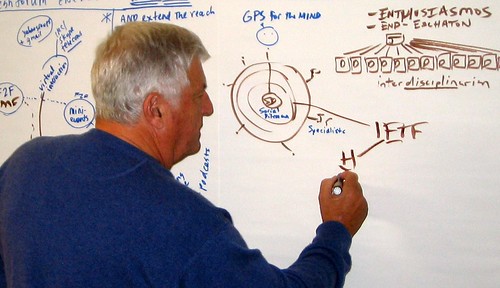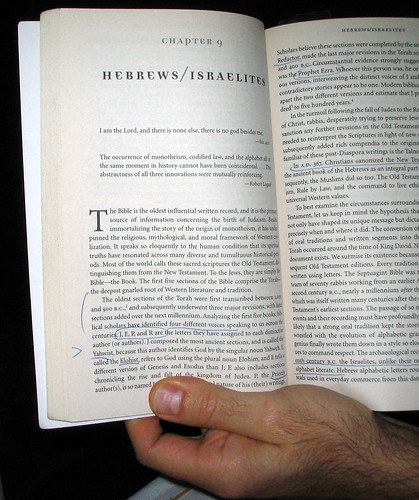VizThink, for those who haven’t heard of it, is a global community of visual thinkers that I helped to launch in 2007. The community was formed in recognition of a broad and emerging trend that offers a new path to innovation in business thinking.
VizThink is very different than other conferences in several ways:
VizThink is about differences: Most conferences try to create a space for like-minded people to gather and learn from each other. VizThink is exactly the opposite. It's a conference about differences. It attempts to cast the widest possible net of people and disciplines that stand to gain from visual thinking.
VizThink is about innovation: The connective power of visualization is one of the reasons you'll find visual thinking at the core of innovation and discovery.
Is your industry undergoing rapid change? Are you stuck in a business or an industry rut? Do you need truly new ways to approach or think about your business? If so then VizThink is for you.
Do you want to learn how people are using visual thinking today, in a wide variety of fields and disciplines, to navigate change and grow their businesses? If so, then VizThink is for you.
At VizThink you will find computer scientists, developers and engineers. You will find project managers, business executives, researchers and strategists. You will find marketers, salespeople, social media experts, educators, psychologists.
You’ll find a wide range of industries, from non-profits to consumer goods, technology, health care, government and education.
VizThink is about design: Yes, you will find designers at VizThink, and people who care about design. Design with a capital “D.” Design as a path to business advantage. Design for world-changing. Design as a method for growth and transformation.
You’ll find user experience designers, product designers, software designers, information designers, industrial designers, web designers, instructional designers, map designers, form designers, e-learning designers, presentation designers and more.
VizThink is about new voices: In January of 2008, Dan Roam’s presentation at VizThink launched a year-long book tour for his first book, the breakaway hit Back of the Napkin, named #1 business book of the year by both Business Week and Fast Company.
Nancy Duarte also presented at VizThink in January of 2008. In September she also launched her first book, Slide:ology, which Prezentation Zen master Garr Reynolds called “My favorite presentation book of all time.”
Both Nancy and Dan will be back at VizThink 2009, along with a host of other speakers who represent a broad spectrum of innovative thinking, including:
Robert Horn, one of the earliest innovators in the visual thinking field, who founded the company Information Mapping in 1967 and wrote the book Visual Language: Global Communication for the 21st Century.
Colin Ware, Director of the world-reknowned Data Visualization Lab at the University of New Hampshire, who has written groundbreaking books on information visualization and visual reasoning, designed 3D geospatial visualization systems, and written over 100 scientific papers related to visualization and perception,
David Sibbet, Founder of the Grove consultancy, who has helped numerous businesses and non-profits develop vision and strategy through visualization,
Luke Wroblewski, Senior principal and product designer at Yahoo, who leads a team that designs and refines the user experience of online products and services,
Jock MacInlay, Xerox PARC veteran and information visualization expert, Director of Visual Analysis at Tableau software,
Joyce Hostyn, Senior Director of Product Design at Open Text, whose focus is bringing interaction design principles to Enterprise Software,
Tom Wujec of AutoDesk, who works with leading-edge Fortune 500 companies to help them incorporate visualization and collaboration into their innovation initiatives,
Jerry Michalski, social media expert who works with leading organizations around the world to help them build trust and community,
Darin Westrich, who has led global brand design for several P&G hallmark brands, such as Crest, Vick’s and Iams,
And many, many, more, too many to name here.
Last year I found VizThink to be a life-changing experience. I have never in my life felt so much electric energy in one place.
This is a tough economy and I know that it’s not easy to find money for conferences. But think about this: The speakers aren’t being paid to be there; they are all going at their own expense, because they want to be a part of this growing community.
VizThink is only weeks away, and due to current economic conditions, VizThink is not planning another global conference until the economy improves. So if you’re thinking, “I’ll go next year,” then think again. This year you have a once-in-a-lifetime opportunity to be a part of this emerging community and I hope you will take advantage of it.
Who will be the breakaway new voices, and which ideas will drive innovation and transformation in 2009? Join me at VizThink 2009 and we’ll find out together.
Keep in touch! Sign up to get updates and occasional emails from me.

